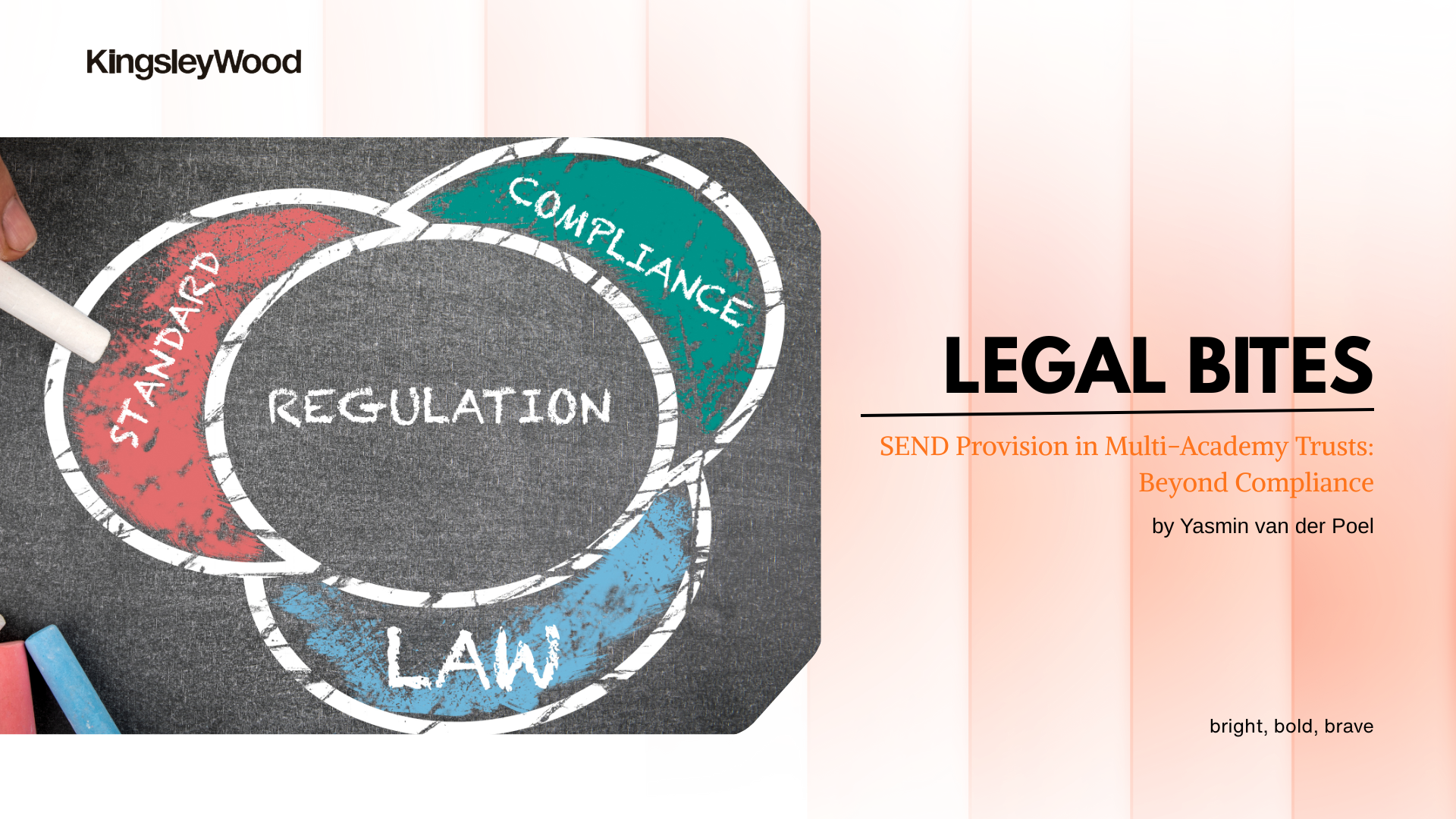Beyond Compliance: Why Multi-Academy Trusts Must Invest in Inclusive SEND Provision
As educational equity continues to take centre stage, Special Educational Needs and Disabilities (SEND) provision in Multi-Academy Trusts (MATs) has become more than a statutory requirement—it’s a test of governance, financial foresight, and moral leadership.

From Legal Duty to Strategic Risk
The framework for SEND provision is comprehensive, but its implementation often falls short. The key pillars include:
- Children and Families Act 2014 (Part 3): establishes the duty to identify, assess, and support pupils with SEND through Education, Health and Care Plans (EHCPs).
- SEND Regulations 2014: outlines procedural rights and responsibilities around EHCPs, including appeals and personal budgets.
- SEND Code of Practice (2015, updated 2024): offers statutory guidance, emphasising co-production, graduated response, and inclusive planning.
- Equality Act 2010: requires “reasonable adjustments” and enforces the Public Sector Equality Duty to eliminate discrimination and advance equality.
- Education Act 1996 and Human Rights Act 1998: protect the right to suitable education and prevent neglect or exclusion.
Recent cases, including R (L, M and P) v Devon County Council [2022] EWHC 493 (Admin), highlight the consequences of delays or failures in EHCP delivery. While local authorities issue EHCPs, MATs are increasingly drawn into disputes over provision, accessibility, and exclusions.
Governance: Trustees as Strategic Guardians
SEND is not just an operational concern—it’s a board-level responsibility. Trustees and governors must:
- Ensure oversight of SEND outcomes, exclusions, and attainment gaps.
- Integrate SEND performance into risk registers, audits, and strategic plans.
- Provide regular training on SEND law, safeguarding, and inclusive pedagogy.
- Act in line with Charity Commission guidance (CC3 and CC30), which requires trustees to serve the best interests of all beneficiaries, including SEND pupils.
Failure to meet these expectations can amount to a breach of fiduciary duty and expose the trust to reputational and regulatory risks.
Financial Forecasting: Inclusion as Investment
True inclusion isn’t an expense—it’s an investment.
MATs that strategically embed SEND provision often see measurable returns, including:
- Fewer exclusions and tribunal costs
- Higher staff retention and morale
- Access to targeted funding such as:
- High Needs Block allocations
- DfE capital grants for SEND facilities
- Charitable funding (e.g. Esmée Fairbairn and Paul Hamlyn Foundation)
Forward-thinking MATs plan ahead with:
- Robust staffing models (qualified SENCOs, therapeutic support teams)
- Centralised SEND leadership and policy alignment across academies
- Legal risk mitigation through proactive compliance and early dispute resolution
The Bottom Line
Inclusive education is both a legal imperative and a moral obligation. For Multi-Academy Trusts, prioritising SEND isn’t just about meeting statutory duties—it’s about building a resilient, future-ready system where every child can succeed.











